
Karol Bagh: The Heartbeat of Delhi's Shopping and Culture
Karol Bagh is a bustling neighborhood in the heart of Delhi, renowned for its vibrant markets, historic sites, and rich cultural atmosphere. As you stroll through its streets, you'll find a captivating mix of the old and new, where traditional Indian bazaars coexist with modern stores, creating a unique shopping experience. One of the main attractions in Karol Bagh is Ajmal Khan Road, a shopper's paradise offering everything from designer clothing to traditional Indian wear, electronics, and more. The street is a sensory delight, with the aroma of street food, the chatter of vendors, and the colorful displays of merchandise. Apart from shopping, Karol Bagh is also known for its culinary delights. From street-side chaat stalls to upscale restaurants, the neighborhood offers a diverse range of dining options that cater to all tastes and budgets. Don't miss trying out the local favorites like parathas, kebabs, and various North Indian sweets. Karol Bagh is steeped in history, with several places of interest nearby. The area is well-connected by public transport, making it easy to explore the rest of Delhi. Whether you're visiting for a day or planning a longer stay, Karol Bagh promises a rich and memorable experience.
Local tips in Karol Bagh
- Visit Ajmal Khan Road for a diverse shopping experience, from designer boutiques to traditional Indian bazaars.
- Try the local street food, especially the parathas and kebabs for an authentic taste of Delhi.
- Use public transport like the metro to easily navigate and explore other parts of Delhi from Karol Bagh.
- Bargaining is common in the markets, so brush up on your negotiation skills for the best deals.
Karol Bagh: The Heartbeat of Delhi's Shopping and Culture
Karol Bagh is a bustling neighborhood in the heart of Delhi, renowned for its vibrant markets, historic sites, and rich cultural atmosphere. As you stroll through its streets, you'll find a captivating mix of the old and new, where traditional Indian bazaars coexist with modern stores, creating a unique shopping experience. One of the main attractions in Karol Bagh is Ajmal Khan Road, a shopper's paradise offering everything from designer clothing to traditional Indian wear, electronics, and more. The street is a sensory delight, with the aroma of street food, the chatter of vendors, and the colorful displays of merchandise. Apart from shopping, Karol Bagh is also known for its culinary delights. From street-side chaat stalls to upscale restaurants, the neighborhood offers a diverse range of dining options that cater to all tastes and budgets. Don't miss trying out the local favorites like parathas, kebabs, and various North Indian sweets. Karol Bagh is steeped in history, with several places of interest nearby. The area is well-connected by public transport, making it easy to explore the rest of Delhi. Whether you're visiting for a day or planning a longer stay, Karol Bagh promises a rich and memorable experience.
Iconic landmarks you can’t miss
Ajmal Khan Park
Discover Ajmal Khan Park, a lush green retreat in the heart of Karol Bagh, perfect for relaxation and leisure amidst Delhi's vibrant city life.
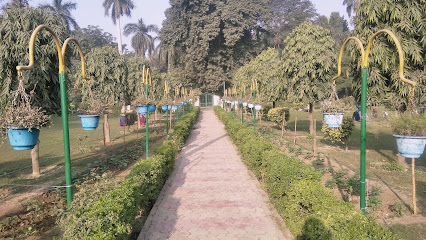
Hanuman Mandir Karol bagh
Explore the spiritual heart of New Delhi at Hanuman Mandir, a must-visit Hindu temple in the vibrant Karol Bagh area.
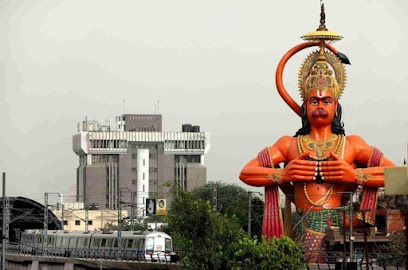
Bhuli Bhatiyari Ka Mahal
Explore Bhuli Bhatiyari Ka Mahal, a historical jewel in New Delhi, where Mughal architecture meets the tranquil beauty of nature.
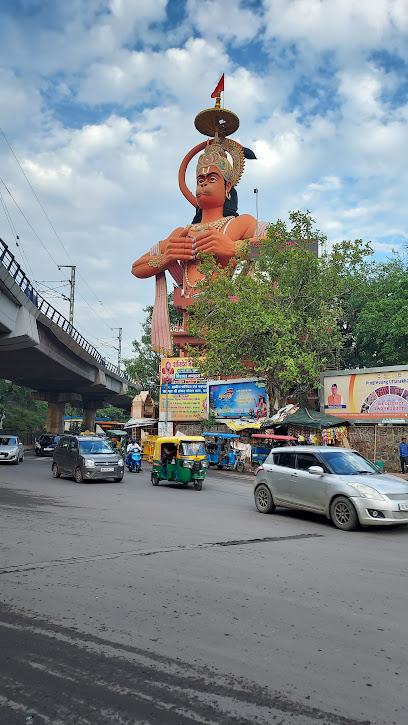
Karol Bagh Market
Explore the lively Karol Bagh Market in Delhi, a treasure trove of shopping, street food, and vibrant culture.
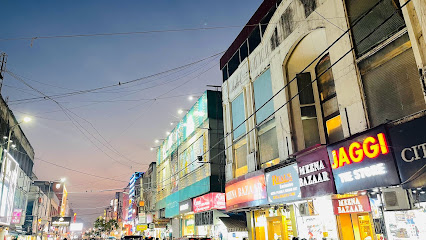
Karol Bagh Tricona Park
Discover serenity at Karol Bagh Tricona Park, a lush green escape in New Delhi's bustling urban landscape, perfect for relaxation and local culture.
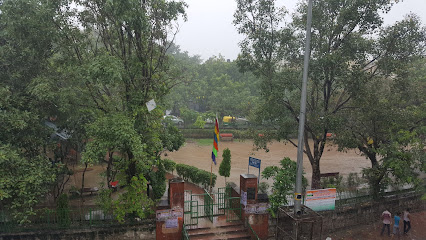
Dr. Khubram Jaajoriya Park
Explore the tranquility of Dr. Khubram Jaajoriya Park in Delhi, a lush retreat perfect for relaxation, picnics, and family fun amidst the urban hustle.
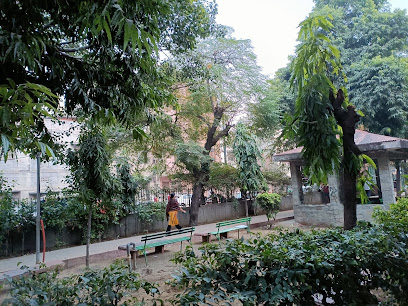
Pusa Road Circle
Discover the vibrant atmosphere and historical significance of Pusa Road Circle in New Delhi, a must-visit for every traveler.
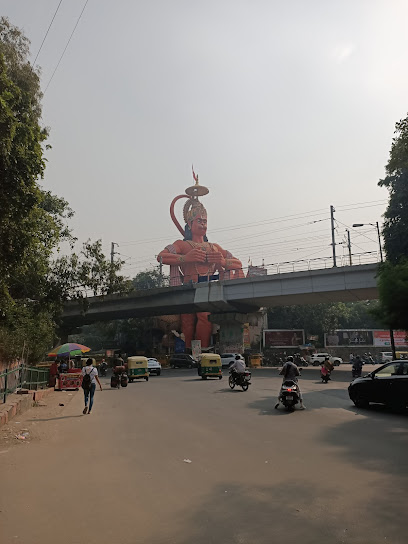
Boudi Park
Discover the serene beauty of Boudi Park in New Delhi, a perfect escape for relaxation and nature lovers amidst the urban landscape.
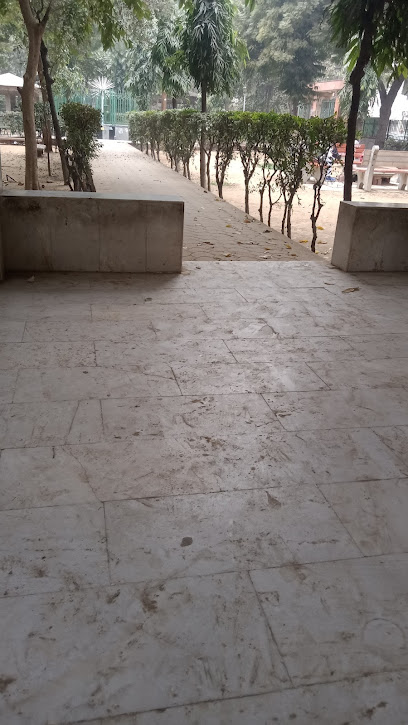
I ️ Karol Bagh Sign
Explore the vibrant Karol Bagh Sign in New Delhi, a cultural landmark surrounded by bustling markets and rich history, perfect for an authentic Indian experience.
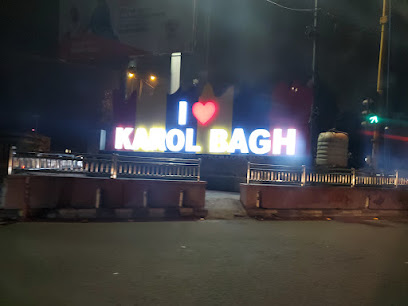
Paralympics Medal Winners Tribute by DSA
Experience the inspiring stories of resilience at the Paralympics Medal Winners Tribute, a must-visit tourist attraction in New Delhi celebrating para-athletes.
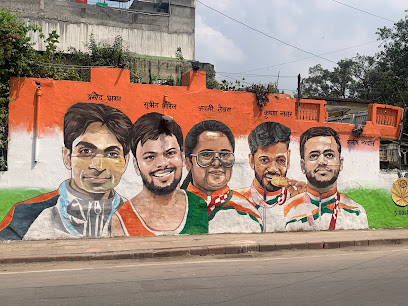
Lala Fakir Chand Mittal Chowk
Experience the vibrant culture and rich history at Lala Fakir Chand Mittal Chowk, a must-visit landmark in the heart of Delhi.
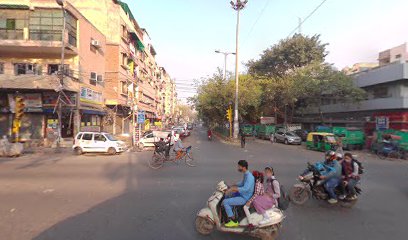
Unmissable attractions to see
Jantar Mantar
Explore Jantar Mantar, Delhi: a historic observatory showcasing 18th-century astronomical instruments and India's scientific heritage.
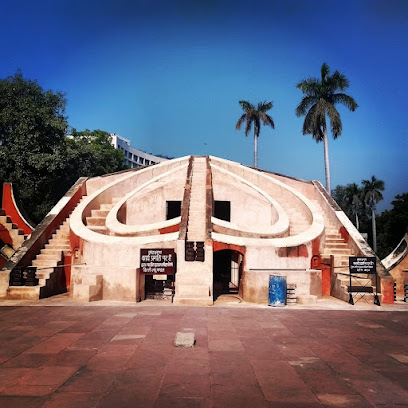
Shri Laxmi Narayan Temple (Birla Mandir)
A stunning New Delhi temple blending architectural styles, dedicated to Laxmi and Narayana, and inaugurated by Mahatma Gandhi.

Ajmal Khan Park
Escape to the serene Ajmal Khan Park in Karol Bagh, Delhi, a green haven with historical significance and recreational opportunities for all ages.
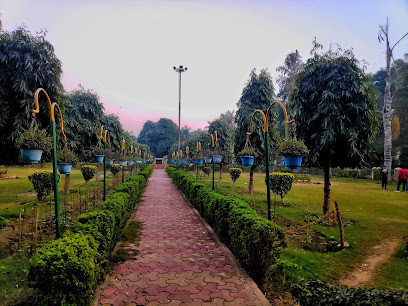
Bhuli Bhatiyari Ka Mahal
Explore the haunting beauty of Bhuli Bhatiyari Ka Mahal, a 14th-century hunting lodge shrouded in mystery and legend in Delhi's Central Ridge Forest.
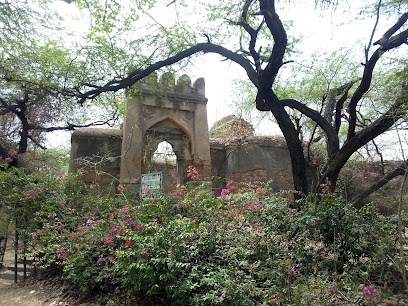
Shri Sanwali Murti Mandir
Discover a serene Hindu temple in Karol Bagh, New Delhi, known for its unique Krishna idol and peaceful ambiance.
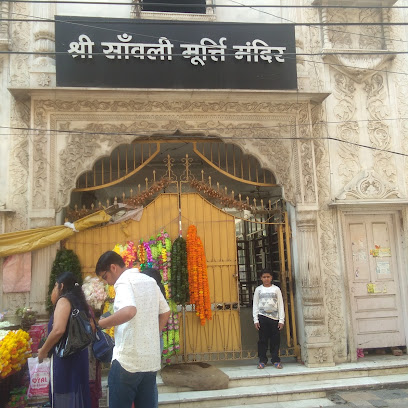
Vishnu Mandir
Discover spiritual solace at Shree Vishnu Mandir in Karol Bagh, New Delhi, a vibrant temple dedicated to Lord Vishnu and other Hindu deities.
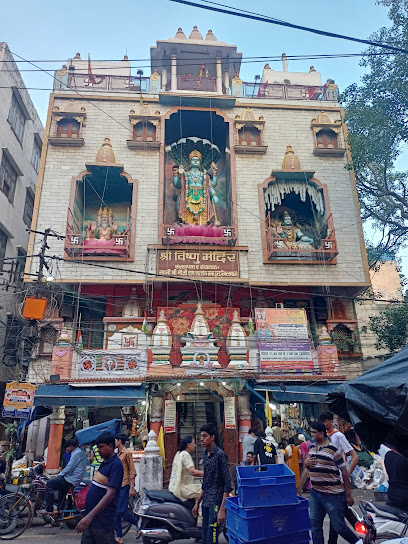
Veer Shiromani Maharana Pratap (Park)
A peaceful park in Karol Bagh, New Delhi, honoring the Rajput hero Maharana Pratap with green spaces and walking paths.
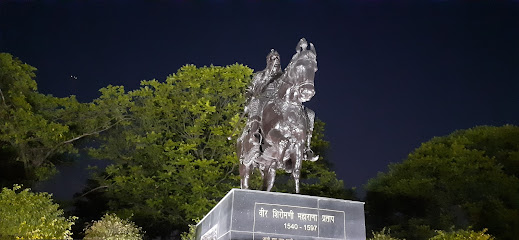
I Love Delhi installation selfie point by DSA
Capture your Delhi memories at this vibrant and iconic selfie point in Patel Nagar. A must-visit for tourists and locals alike!
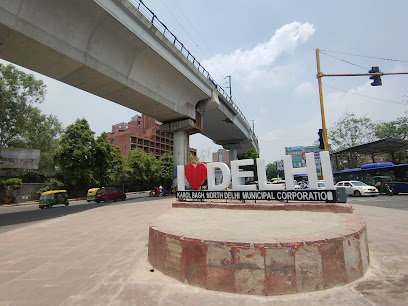
I ️ Karol Bagh Sign
Explore the vibrant Karol Bagh Sign in New Delhi, a cultural hub of shopping and heritage reflecting India's rich traditions.
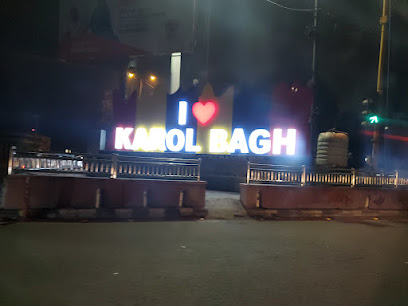
Paralympics Medal Winners Tribute by DSA
A tribute to the Paralympics medal winners, celebrating their achievements & inspiring stories in the heart of New Delhi's Karol Bagh.
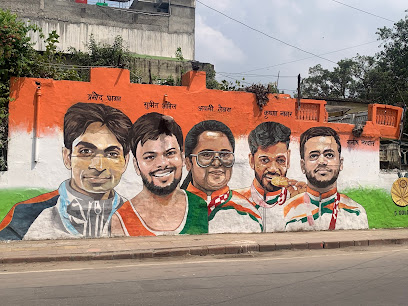
Essential places to dine
Bikanervala
Experience the rich flavors of India at Bikanervala, a family-friendly restaurant offering authentic North and South Indian cuisine along with delectable sweets.
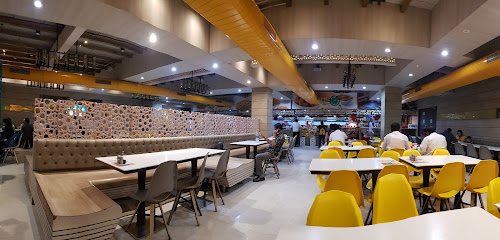
Ganesh Restaurant
Experience authentic Indian cuisine at Ganesh Restaurant, where every dish tells a story rich in flavor and tradition.
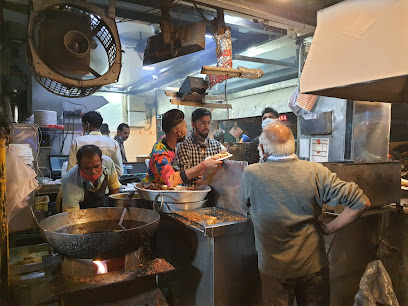
Sandoz Dbg Road, Karol Bagh
Experience authentic North Indian cuisine at Sandoz Dbg Road in Karol Bagh – a culinary treasure amidst New Delhi's bustling streets.
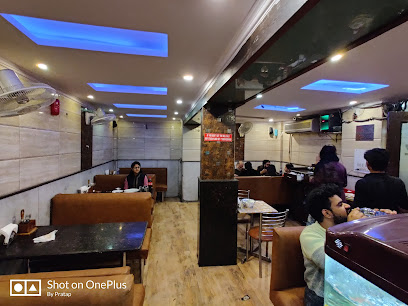
Suruchi Restaurant
Discover the essence of Indian cuisine at Suruchi Restaurant - where tradition meets taste in every bite.
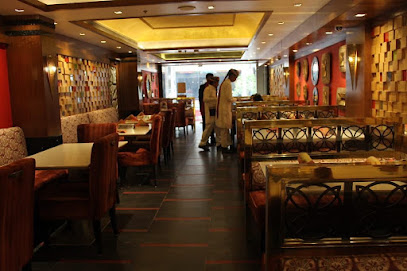
The Spot
Experience authentic Chinese flavors at The Spot in Karol Bagh – a must-visit dining destination in New Delhi.
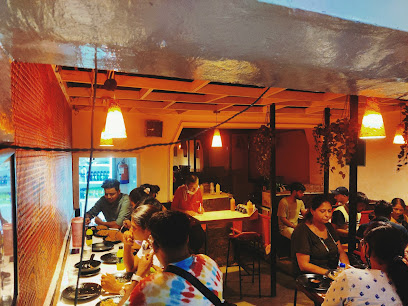
The Dhaba Junction - best restaurants in karol bagh
Discover authentic Indian flavors at The Dhaba Junction in Karol Bagh – where tradition meets modern dining in Delhi.
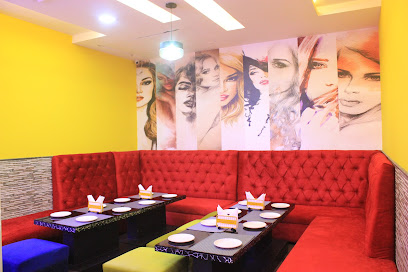
Oh! Pind
Discover the rich culinary heritage of Punjab at Oh! Pind – a must-visit restaurant in New Delhi's Channa Market.
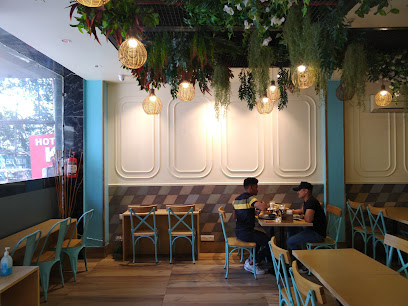
DIMPLE RESTAURANT
Experience authentic North Indian and Chinese cuisine at Dimple Restaurant in Karol Bagh, New Delhi - a true gastronomic delight.
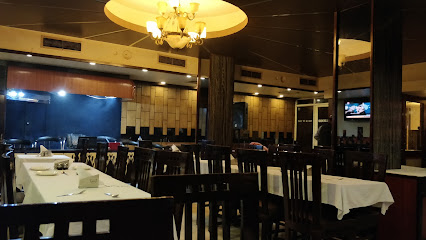
Olive Daniels
Experience the rich flavors of India at Olive Daniels – where Indian, Chinese, and Mughlai cuisines come together in Karol Bagh.
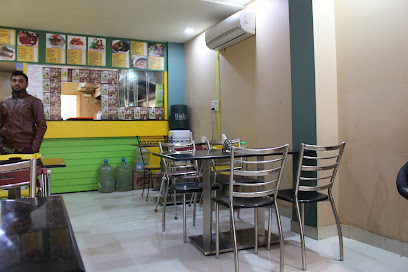
Southern Masala
Savor authentic South Indian dishes at Southern Masala - a fine dining experience blending tradition with taste in the heart of New Delhi.
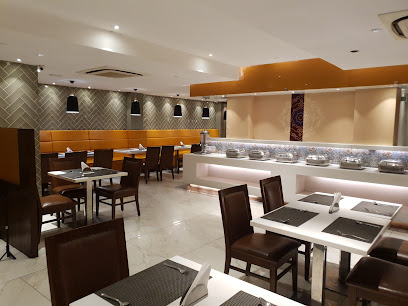
Markets, malls and hidden boutiques
Westside - Karol Bagh, Delhi
Experience the best of fashion at Westside, a clothing store in Karol Bagh, Delhi, offering stylish apparel for everyone at great prices.
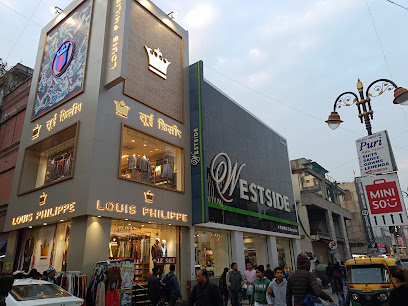
Unique fashion point
Discover trendy fashion at Unique Fashion Point, Karol Bagh - your ultimate destination for wholesale clothing in Delhi.
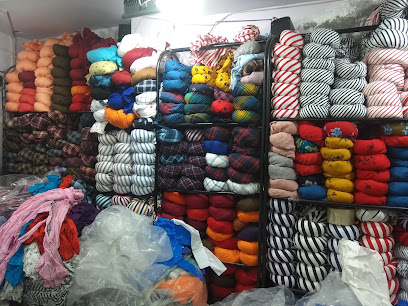
Karol Bagh Market
Discover the vibrant Karol Bagh Market, where tradition meets modernity in a bustling New Delhi shopping experience.
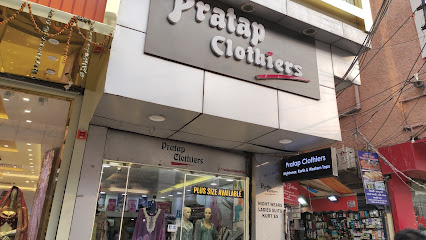
DC Fashion - Karol Bagh
Discover the essence of contemporary Indian fashion at DC Fashion in Karol Bagh, offering designer clothing and expert tailoring services.
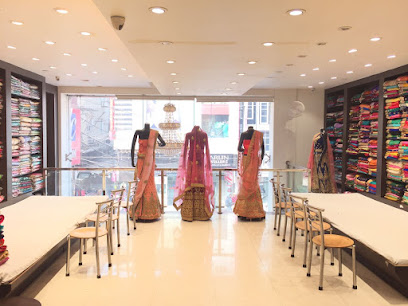
Kala Shree
Explore Kala Shree in New Delhi for exquisite bridal wear, designer clothing, and stunning sarees that create unforgettable wedding memories.
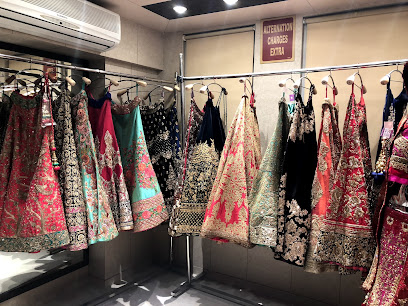
Clothes 'N; More
Explore a vibrant clothing store in Karol Bagh, New Delhi, offering a unique blend of traditional and contemporary styles for every fashion enthusiast.
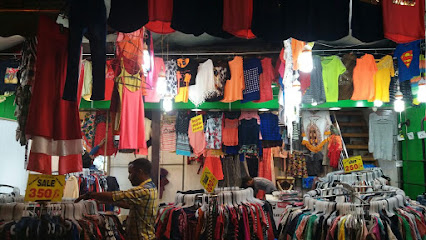
P K Stores
Explore a vibrant world of beauty at P K Stores, your ultimate destination for cosmetics, skincare, and baby products in New Delhi.
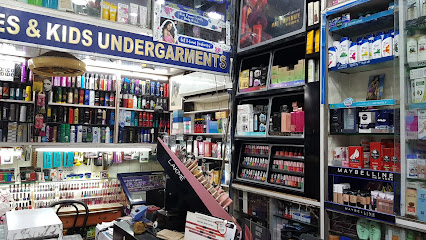
Sunrise The Gift World
Explore a treasure trove of unique gifts and home decor at Sunrise The Gift World, a must-visit destination in New Delhi.
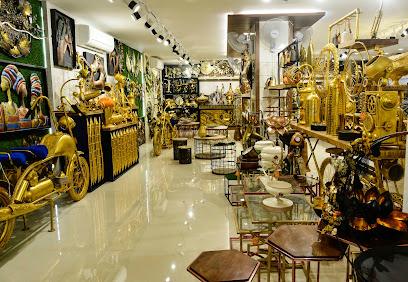
Ritika Ethnic Wear
Explore the elegance of Indian ethnic wear at Ritika Ethnic Wear, a designer clothing store in Delhi offering exquisite collections for every occasion.
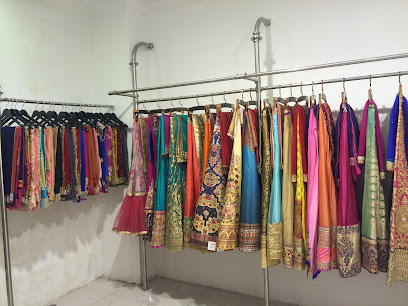
Great Eastern Retail Pvt Ltd: Karol Bagh
Explore the ultimate electronics shopping experience in Karol Bagh, Delhi, at Great Eastern Retail Pvt Ltd, where innovation meets exceptional service.
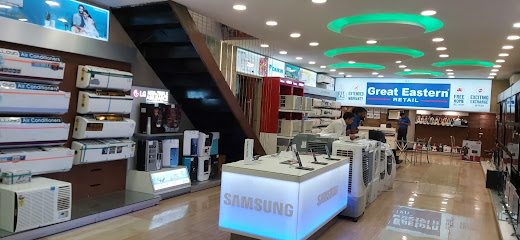
Essential bars & hidden hideouts
DIMPLE RESTAURANT
Discover the vibrant flavors of North Indian and Chinese cuisine at Dimple Restaurant in the heart of New Delhi's Karol Bagh.
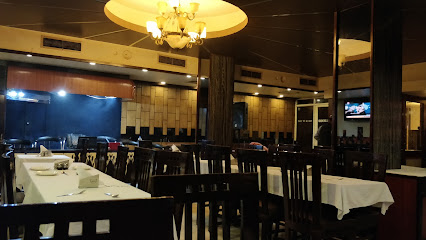
Bohéme Cafe Bar
Bohéme Cafe Bar: A delightful blend of vibrant atmosphere, vegetarian cuisine, and social energy in the heart of New Delhi.
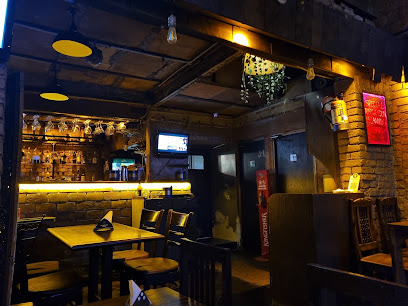
SOCIAL AFFAIRE RESTRO BAR- BEST BAR IN DELHI
Experience Delhi's vibrant nightlife at Social Affaire Restro Bar, a must-visit destination for food and drink lovers.
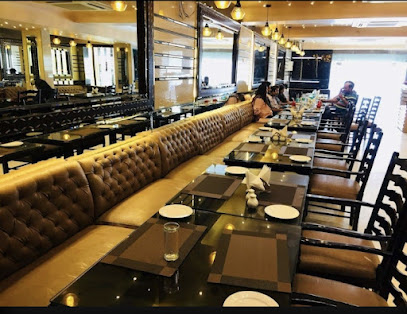
Jade Garden Bar & Restaurant
Savor the best of Chinese and North Indian cuisine at Jade Garden Bar & Restaurant in the heart of Karol Bagh, New Delhi.
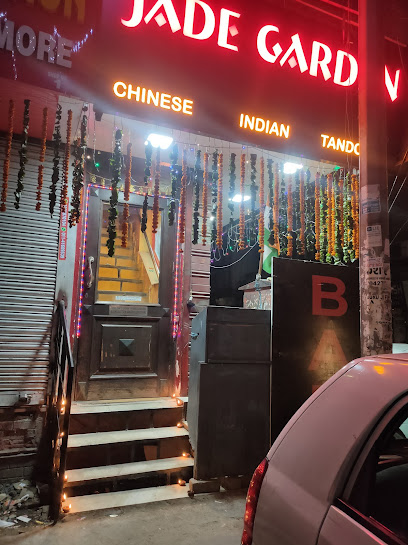
hooter restro & bar
Discover the lively spirit of Delhi at Hooter Restro & Bar, where vibrant nightlife meets delicious cuisine in a welcoming atmosphere.
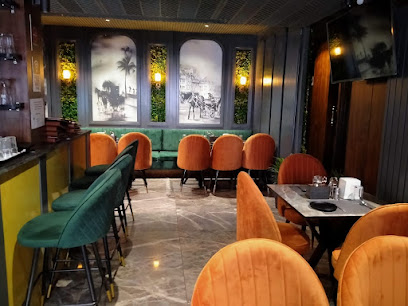
Rhaas cafe & lounge
Experience the vibrant flavors of Delhi at Rhaas Cafe & Lounge, where culinary excellence meets a cozy ambiance.
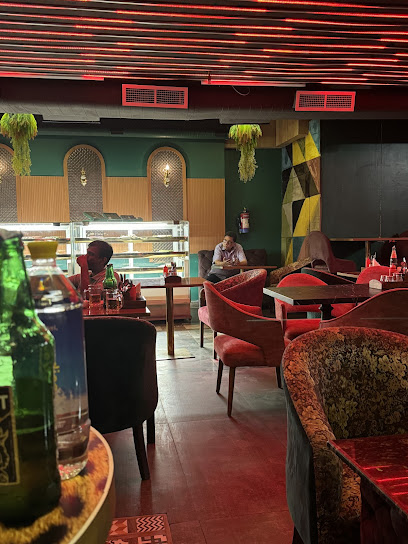
The Night Curfew Cafe
Discover The Night Curfew Cafe in New Delhi: A perfect blend of comfort, flavor, and vibrant atmosphere for all travelers.
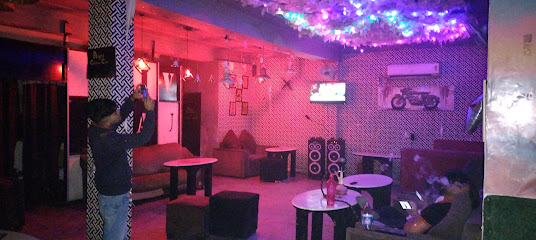
Rose Bar
Experience the serene ambiance of Rose Bar, a tranquil oasis in New Delhi, perfect for enjoying cocktails and unwinding after a day of exploration.
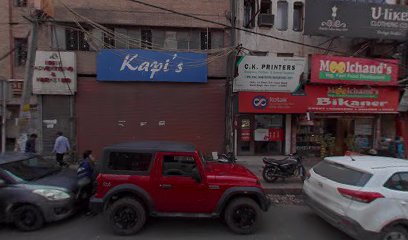
बारटेंडर सर्विस
Discover the vibrant cocktail culture of Delhi at BarTender Service, where expert mixology meets a lively atmosphere.
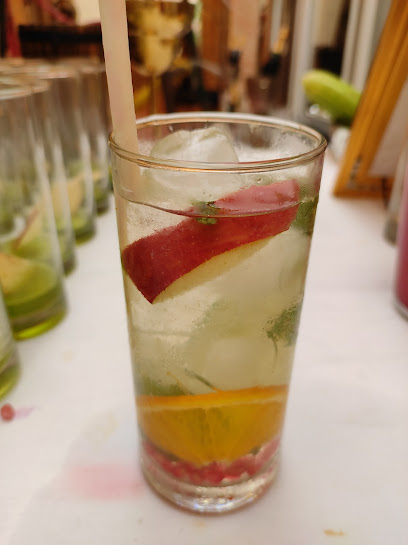
Rhaas Pub And Lounge
Experience the lively atmosphere at Rhaas Pub and Lounge in Karol Bagh, where great food, drinks, and music come together for an unforgettable evening.
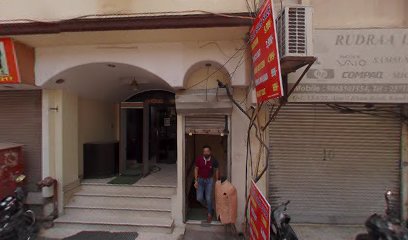
Local Phrases
-
- Helloनमस्ते
[Namaste] - Goodbyeअलविदा
[Alvida] - Yesहां
[Haan] - Noनहीं
[Nahi] - Please/You're welcomeकृपया
[Kripya] - Thank youधन्यवाद
[Dhanyawad] - Excuse me/Sorryमाफ़ कीजिए
[Maaf kijiye] - How are you?आपका हाल चाल कैसा है?
[Aapka haal chaal kaisa hai?] - Fine. And you?ठीक हूँ। आप सुनाएं?
[Theek hoon. Aap sunayein?] - Do you speak English?क्या आप अंग्रेज़ी बोलते हैं?
[Kya aap angrezi bolte hain?] - I don't understandमुझे समझ में नहीं आया
[Mujhe samajh mein nahi aaya]
- Helloनमस्ते
-
- I'd like to see the menu, pleaseकृपया मेन्यू दिखाएं
[Kripya menu dikhayein] - I don't eat meatमैं मांस नहीं खाता
[Main maans nahi khaata] - Cheers!चियर्स!
[Cheers!] - I would like to pay, pleaseकृपया मैं भुगतान करना चाहूं
[Kripya main bhugtan karna chahoon]
- I'd like to see the menu, pleaseकृपया मेन्यू दिखाएं
-
- Help!बचाओ!
[Bachao!] - Go away!चले जाओ!
[Chale jao!] - Call the Police!पुलिस को बुलाओ!
[Police ko bulao!] - Call a doctor!डॉक्टर को बुलाओ!
[Doctor ko bulao!] - I'm lostमैं खो गया हूँ
[Main kho gaya hoon] - I'm illमुझे बीमारी है
[Mujhe bimari hai]
- Help!बचाओ!
-
- I'd like to buy...मुझे खरीदना है...
[Mujhe khareedna hai...] - I'm just lookingमैं बस देख रहा हूँ
[Main bas dekh raha hoon] - How much is it?यह कितने का है?
[Yeh kitne ka hai?] - That's too expensiveयह बहुत महंगा है
[Yeh bahut mehnga hai] - Can you lower the price?क्या आप कीमत कम कर सकते हैं?
[Kya aap keemat kam kar sakte hain?]
- I'd like to buy...मुझे खरीदना है...
-
- What time is it?अब कितने बजे हैं?
[Ab kitne baje hain?] - It's one o'clockएक बजे हैं
[Ek baje hain] - Half past (10)(10) के बाद आधे घंटे
[(10) ke baad aadhe ghante] - Morningसुबह
[Subah] - Afternoonदोपहर
[Dopahar] - Eveningशाम
[Shaam] - Yesterdayकल
[Kal] - Todayआज
[Aaj] - Tomorrowकल
[Kal] - 1एक
[Ek] - 2दो
[Do] - 3तीन
[Teen] - 4चार
[Char] - 5पाँच
[Paanch] - 6छे
[Chhe] - 7सात
[Saath] - 8आठ
[Aath] - 9नौ
[Nau] - 10दस
[Das]
- What time is it?अब कितने बजे हैं?
-
- Where's a/the...?...कहाँ है?
[...kahan hai?] - What's the address?पता क्या है?
[Pata kya hai?] - Can you show me (on the map)?क्या आप मुझे दिखा सकते हैं (नक्शे पर)?
[Kya aap mujhe dikhha sakte hain (naksha par)?] - When's the next (bus)?अगली (बस) कब है?
[Agli (bus) kab hai?] - A ticket (to ....)एक टिकट (.... के लिए)
[Ek ticket (.... ke liye)]
- Where's a/the...?...कहाँ है?
History of Karol Bagh
-
Karol Bagh, one of Delhi's oldest neighborhoods, traces its origins back to the early 19th century when it emerged as a prominent market area. Initially, it was a part of the larger Delhi region, which had been a crucial center for trade and commerce for centuries. The neighborhood was originally populated by traders and merchants, leading to its reputation as a bustling commercial hub.
-
During the First War of Independence in 1857, Karol Bagh played a significant role as a center of revolutionary activities. The neighborhood became a site for protests against British rule, with many local residents participating in the uprising. The rebellion marked a turning point in Indian history, and Karol Bagh’s involvement underscored its importance in the struggle for freedom.
-
After India gained independence in 1947, Karol Bagh experienced rapid urbanization and development. The area transformed significantly, with an influx of migrants from various parts of India seeking opportunities in the burgeoning markets. This demographic shift contributed to the rich cultural tapestry of Karol Bagh, making it a melting pot of traditions, cuisines, and languages.
-
Today, Karol Bagh is renowned for its diverse shopping experiences, particularly in textiles, jewelry, and electronics. The cultural significance of the neighborhood is reflected in its vibrant street life, festivals, and food stalls. It serves as a testament to the historical convergence of different communities and their shared heritage within the larger context of Delhi’s evolution as a metropolitan city.
-
Karol Bagh is home to several historical landmarks that showcase its architectural heritage. Notable sites include the Jain Temple, which exemplifies intricate craftsmanship, and the iconic Ajmal Khan Road, a bustling thoroughfare lined with shops and eateries. These landmarks not only highlight the neighborhood's historical significance but also contribute to its identity as a cultural hotspot within Delhi.
Karol Bagh Essentials
-
Karol Bagh is easily accessible from various parts of Delhi. The nearest metro station is Karol Bagh on the Blue Line, which connects to major areas like Connaught Place and Dwarka. From Indira Gandhi International Airport, you can take a taxi or airport shuttle to reach Karol Bagh, approximately 20 kilometers away. Alternatively, you can hire a cab from anywhere in the city, or take a DTC bus that passes through the area.
-
Karol Bagh is well-connected through the Delhi Metro and public buses. The local metro station allows you to easily navigate other parts of the city. Auto-rickshaws and cycle-rickshaws are also popular for short distances within the neighbourhood. Walking is a great way to explore the bustling markets and streets, but be cautious of traffic. Bicycles can be rented from various local outlets if you prefer a more active way to explore.
-
Karol Bagh is generally safe for tourists, but it is advisable to stay vigilant in crowded places. Avoid areas that are poorly lit at night and refrain from displaying valuable items. Petty crime, such as pickpocketing, can occur, especially in busy markets. It's best to stay alert and keep your belongings secure. Specific areas to be cautious about include narrow alleys and less crowded streets after dark.
-
In case of an emergency, dial 112 for police assistance or 101 for fire services in India. For medical emergencies, seek help at the nearest hospital; the nearest government hospital is Lok Nayak Jay Prakash Hospital. It is advisable to have travel insurance that covers medical emergencies. Pharmacies are abundant in the area for minor health issues.
-
Fashion: Do dress modestly, particularly when visiting religious sites; avoid shorts and sleeveless tops. Religion: Do respect local customs; cover your head when entering gurdwaras or temples. Public Transport: Do give up your seat to elderly passengers; don't engage in loud conversations. Greetings: Do greet locals with a polite 'Namaste' with palms together; avoid being overly familiar. Eating & Drinking: Do try local street food but ensure it's from busy stalls; don't drink tap water, always opt for bottled water.
-
To experience Karol Bagh like a local, visit the bustling Ajmal Khan Road for shopping and street food. Engage with shopkeepers, who can offer local insights and recommendations. Try the famous chaat and parathas at local eateries and explore hidden lanes to discover less touristy shops. Participate in local festivals if your visit coincides with one, as it offers a vibrant glimpse into the culture.
Nearby Cities to Karol Bagh
-
Things To Do in Agra
-
Things To Do in Rishikesh
-
Things To Do in Jaipur
-
Things To Do in Shimla
-
Things To Do in Gwalior
-
Things To Do in Ranthambore
-
Things To Do in Pushkar
-
Things To Do in Kanpur
-
Things To Do in Manali
-
Things To Do in Amritsar
-
Things To Do in Lahore
-
Things To Do in Lucknow
-
Things To Do in Gujranwala
-
Things To Do in Jodhpur
-
Things To Do in Sialkot











